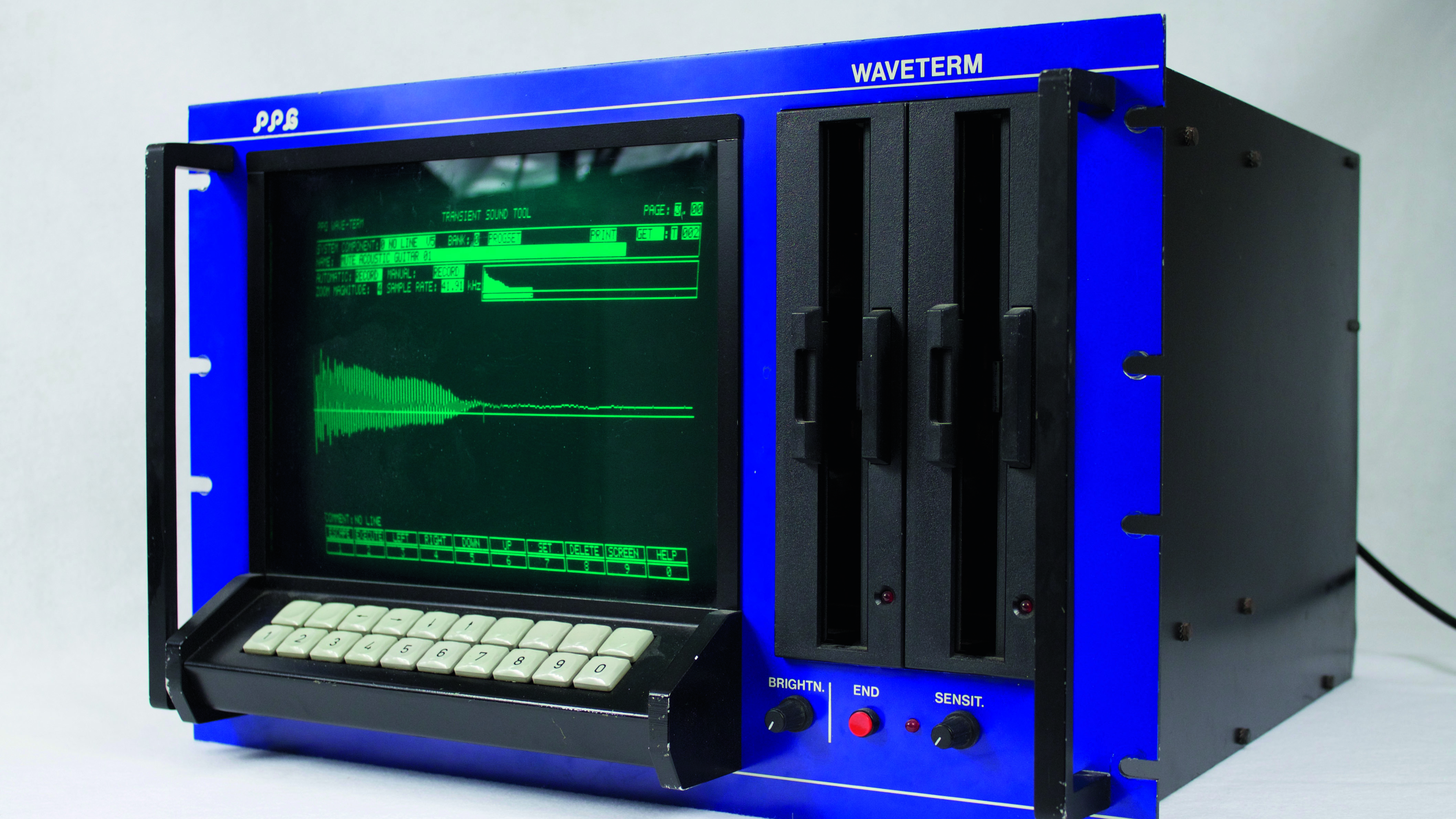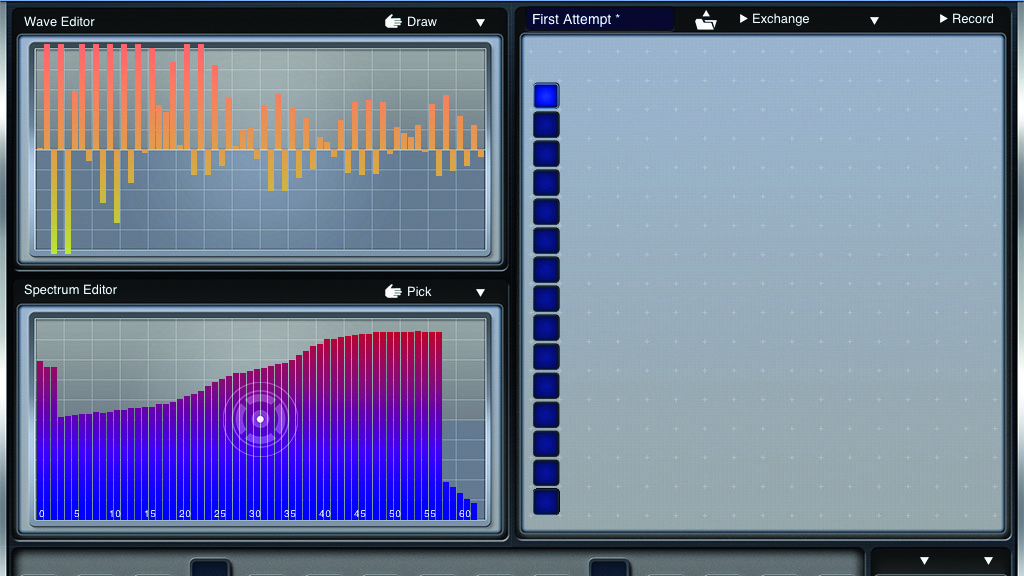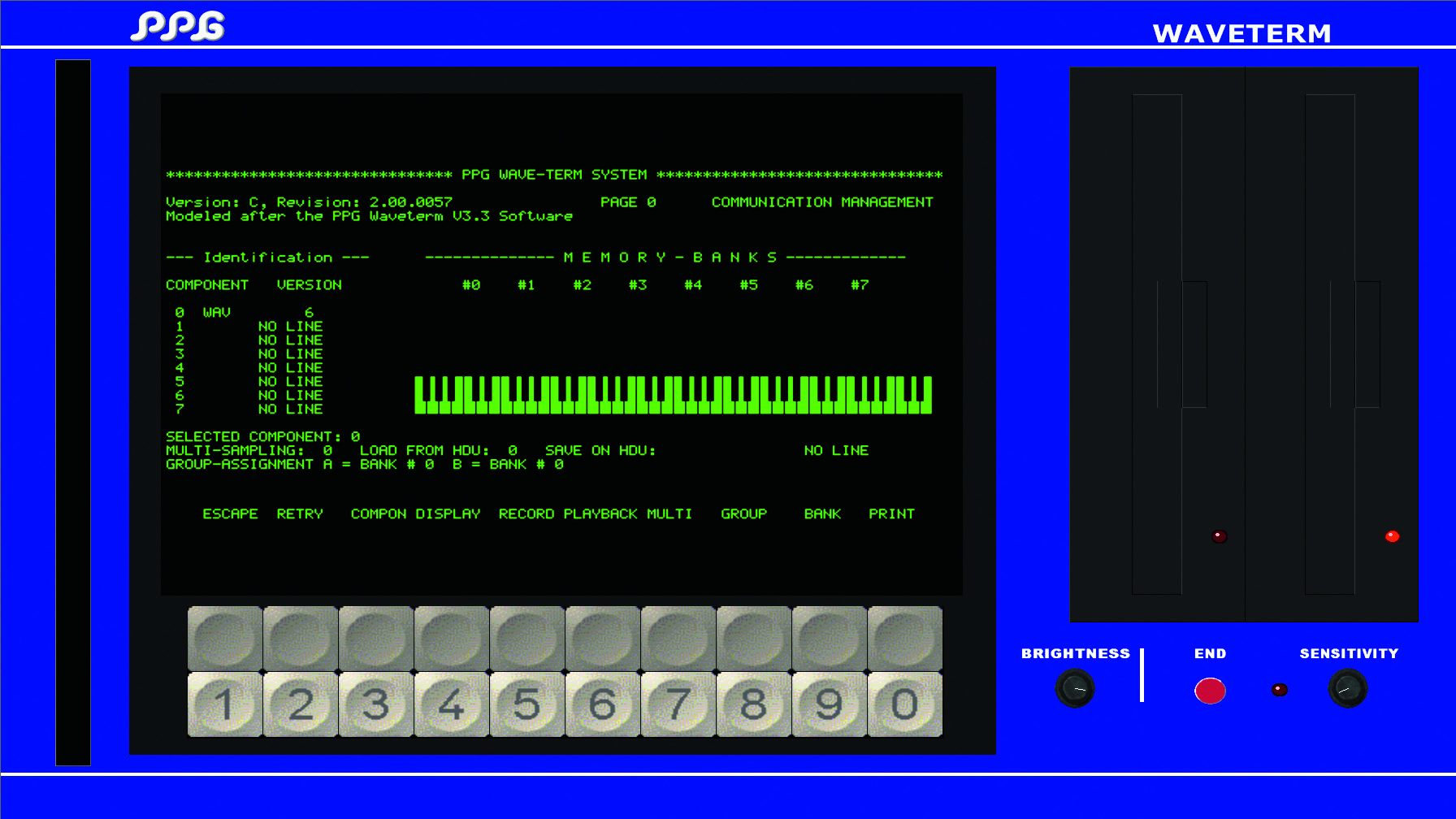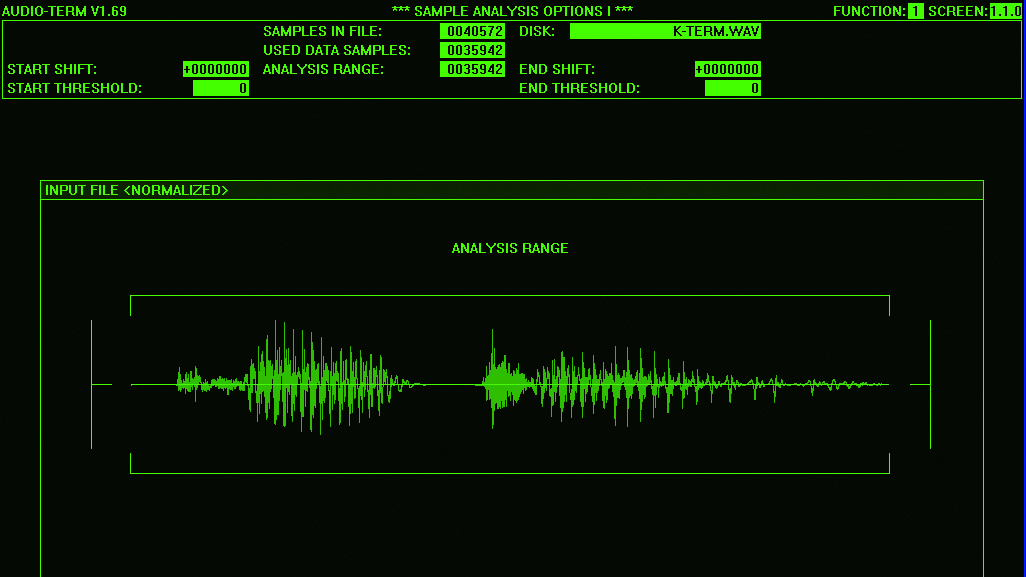Blast from the past: PPG Waveterm
Initially released as a companion to PPG’s legendary Wave 2.2, this giant slab of silicon put considerable sound-shaping power into the hands of many a noted synthesist

Wavetable synthesis is undergoing something of a revival at the moment, with multiple hardware and software variants on the theme available to musicians. Maybe the same old analogue waveforms are growing a bit stale.
This is precisely what happened the first time around, when German company PPG unleashed the PPG Wave, a hybrid instrument with oscillators that offered the ability to draw from a vast collection of digitally-stored single-cycle waveforms that had been strung together in a ‘wavetable’. Unlike the static sample playback offered by the ROMplers that followed, PPG instruments could dynamically modulate through the waves of the selected wavetable. The results were sounds with timbral movement the likes of which had never before been heard.
PPG perfected its design with the addition of an analogue filter and VCA, reducing the harshness of the 8-bit waves found in the Wave 2 and 2.2. The 12-bit Wave 2.3 was the most successful of the lot, with over 700 units sold.
As powerful as they were, the Waves offered a finite number of factory-defined wavetables which, though a vast improvement over the analogue synths that preceded them, seemed limited compared to the early samplers that were coming into vogue in the early 1980s.
PPG’s Waveterm would put paid to those limitations, and a whole lot more. Housed in a hulking blue 7U steel case, the Waveterm provided Wave 2.2 users with sampling and sample editing, additive and FM waveform creation, custom wavetable creation, an unusual type of resonator-based synthesis and the ability to edit the Wave’s sequences.
The first version of the Waveterm was powered by a 6800 processor and sported dual 8” floppy drives. An upgraded version designed to work with the Wave 2.3’s added features upped the ante with a 68000 processor, 5 1/4” drives and longer sampling times.
Year of manufacture
1982
Original sale value
$10,650
Current price
Unknown
Number made
Approximately 300
This was heady stuff in its day, but the operating system was easy to grok, if sometimes tedious to use. A Wave-Waveterm system could perform all of the most advanced sampling and sequencing functions of the time, though its price put off casual musicians – and the fact that the Waveterm couldn’t be used without the Wave made it more expensive still. That, of course, didn’t stop the likes of The Stranglers, Tangerine Dream, and Gary Numan, all of whom peppered their records with PPG sounds.
Want all the hottest music and gear news, reviews, deals, features and more, direct to your inbox? Sign up here.
Astonishingly, in 2012 PPG mainman Wolfgang Palm updated the Waveterm B’s software to 1.01, allowing it to work with the Wave 2.2 and creating a whole slew of new Resonator files for the few remaining Waveterm users. That’s some serious longterm support!
There’s nothing like the crunch of a sample or wavetable spat forth from a Waveterm, but vintage units are as rare, and usually cost a lot. Moreover, the disks used to store the OS, sounds and samples are becoming difficult to source, and even harder to trust. Floppy disks weren’t meant to last three decades, and alas, many haven’t. However, modern software variants are around, particularly if you’re just out to create your own wavetables.
Three great plugin alternatives

PPG Wavegenerator
The PPG WaveGenerator is Wolfgang Palm’s modern take on the PPG Wave/Waveterm combo, offering custom waveform generation, wavetable creation and a whole slew of interesting modulation options. It’s the logical evolution of wavetable synthesis, designed less to fulfil a vintage fantasy than to create entirely new sonic vistas.

Hermann Seib Waveterm C
Waveterm C was meant as a means of recreating the features of the Waveterm on a Windows PC, with the aim of connecting and controlling an actual PPG Wave. However, it works well on its own, and with the ‘demo’ version of Seib’s free PPG Wave clone called WaveSim. Worth a look if you want the exact experience of using an 80s-era PPG system.

Mathias Gurk AudioTerm
Designed as a programming exercise, this is a Windows-based wavetable creation tool inspired by the Waveterm. It can seem impenetrable to the modern user, but those who fancy whipping up their own wavetables for use with various compatible hardware and software instruments love it. It’s hard to find, but there’s a valid link here.


Computer Music magazine is the world’s best selling publication dedicated solely to making great music with your Mac or PC computer. Each issue it brings its lucky readers the best in cutting-edge tutorials, need-to-know, expert software reviews and even all the tools you actually need to make great music today, courtesy of our legendary CM Plugin Suite.
